Antibody validation
Your experiments need well-validated, high quality antibodies.
All of our antibodies go through a rigorous validation procedure to ensure the highest quality products come to your bench. Repeatable, consistent results are key to success of your research.
Antibody Validation
Antibody Validation
In scientific research, the specificity and reliability of antibodies are paramount. Regardless of your field or application, working with validated antibodies increases the chances of success in your scientific and diagnostic endeavors.
The Importance of Antibody Validation
Antibodies are critical tools in the quest to understand fundamental biological processes, diagnose diseases and develop new therapies. Proper antibody validation confirms that an antibody binds specifically to its intended protein target. Antibody validation helps to ensure your Western blotting, immunohistochemistry, flow cytometry, ELISA, and other antibody-based experiments provide trustworthy scientific conclusions. Indeed, unvalidated antibodies can lead to false-positive or false-negative results, wasted resources, and skewed interpretations of experimental data. Even what many antibody producers call “validated” antibodies are prone to false negative results as they are only tested for their binding of the intended target; they are not tested for off-target binding. A study co-authored by NeoBiotechnologies’ CEO, Dr. Atul K. Tandon, reported that 78% of monoclonal antibodies they analyzed were not monospecific, debunking the belief that all monoclonals are always monospecific and emphasizing the importance of more thorough antibody validation (Bradbury et al. 2018)
Additionally, we assist in confirming the functionality of the antibody in specific application(s) of interest. Application verification is employed to guarantee the antibody’s efficacy not only in a singular application but also across various other applications, demonstrating its accurate target binding. Our expertise spans a broad spectrum of applications, encompassing western blot, flow cytometry, ChIP assays, immunocytochemistry (ICC), and immunohistochemistry (IHC). Explore each application below to access a typical protocol utilized for application verification.
Sequencing
One aspect that sets NeoBiosciences apart from other antibody manufacturers is that we sequence all our products. This added quality control step ensures reproducibility and lot-to-lot consistency. Furthermore, it facilitates potential partnerships and licensing.
- Bradbury, Andrew R. M., Nathan D. Trinklein, Holger Thie, Ian C. Wilkinson, Atul K. Tandon, Stephen Anderson, Catherine L. Bladen, et al. 2018. “When Monoclonal Antibodies Are Not Monospecific: Hybridomas Frequently Express Additional Functional Variable Regions.” mAbs 10 (4): 539–46. https://doi.org/10.1080/19420862.2018.1445456. ↩︎
- Uhlen, M., Bandrowski, A., Carr, S. et al. A proposal for validation of antibodies. Nat Methods 13, 823–827 (201
Enhanced Validation
At NeoBiotechnologies, we use both Protein Array analysis and Tissue Microarrays (TMAs) as powerful tools in our antibody validation process. The HuProt platform enables comprehensive testing against a vast array of human proteins, ensuring rigorous confirmation of antibody specificity. Similarly, TMAs allow for high-throughput screening across diverse tissues, ensuring comprehensive evaluation and reliable assessment of antibody specificity. Explore the significance of our enhanced validation techniques below.
The Importance of Antibody Validation
Antibodies are critical tools in the quest to understand fundamental biological processes, diagnose diseases and develop new therapies. Proper antibody validation confirms that an antibody binds specifically to its intended protein target. Antibody validation helps to ensure your Western blotting, immunohistochemistry, flow cytometry, ELISA, and other antibody-based experiments provide trustworthy scientific conclusions. Indeed, unvalidated antibodies can lead to false-positive or false-negative results, wasted resources, and skewed interpretations of experimental data. Even what many antibody producers call “validated” antibodies are prone to false negative results as they are only tested for their binding of the intended target; they are not tested for off-target binding. A study co-authored by NeoBiotechnologies’ CEO, Dr. Atul K. Tandon, reported that 78% of monoclonal antibodies they analyzed were not monospecific, debunking the belief that all monoclonals are always monospecific and emphasizing the importance of more thorough antibody validation (Bradbury et al. 2018)1.
NeoBiotechnologies’ Standard of Antibody Validation
At NeoBiotechnologies, we are committed to upholding the highest standards of antibody validation to meet the diverse needs of the scientific community. We employ cutting-edge techniques and continually invest in research and development to enhance antibody validation methods. Our comprehensive validation process includes SDS-PAGE, mycoplasma cleaning, IHC on FFPE tissues, Western blotting, Human protein arrays, and other methods. We validate our products for the applications listed by performing redundant tests on the antibodies and performing rigorous quality control to ensure monospecificity. Our antibodies undergo thorough assessments to ensure specificity and optimal performance across various applications. Furthermore, we conduct an additional level of validation, known as Enhanced Validation, in accordance with the guidelines outlined by the International Working Group for Antibody Validation (IWGAV) as published in Nature Methods (Uhlen et al. 2016)2.
Enhanced validation
At NeoBiotechnologies, we use both Protein Array analysis and Tissue Microarrays (TMAs) as powerful tools in our antibody validation process. The HuProt platform enables comprehensive testing against a vast array of human proteins, ensuring rigorous confirmation of antibody specificity. Similarly, TMAs allow for high-throughput screening across diverse tissues, ensuring comprehensive evaluation and reliable assessment of antibody specificity. Explore the significance of our enhanced validation techniques below.
Application validation
Additionally, we assist in confirming the functionality of the antibody in specific application(s) of interest. Application verification is employed to guarantee the antibody’s efficacy not only in a singular application but also across various other applications, demonstrating its accurate target binding. Our expertise spans a broad spectrum of applications, encompassing western blot, flow cytometry, ChIP assays, immunocytochemistry (ICC), and immunohistochemistry (IHC). Explore each application below to access a typical protocol utilized for application verification.
Sequencing
One aspect that sets NeoBiosciences apart from other antibody manufacturers is that we sequence all our products. This added quality control step ensures reproducibility and lot-to-lot consistency. Furthermore, it facilitates potential partnerships and licensing.
- Bradbury, Andrew R. M., Nathan D. Trinklein, Holger Thie, Ian C. Wilkinson, Atul K. Tandon, Stephen Anderson, Catherine L. Bladen, et al. 2018. “When Monoclonal Antibodies Are Not Monospecific: Hybridomas Frequently Express Additional Functional Variable Regions.” mAbs 10 (4): 539–46. https://doi.org/10.1080/19420862.2018.1445456. ↩︎
- Uhlen, M., Bandrowski, A., Carr, S. et al. A proposal for validation of antibodies. Nat Methods 13, 823–827 (2016). https://doi.org/10.1038/nmeth.3995 ↩︎




